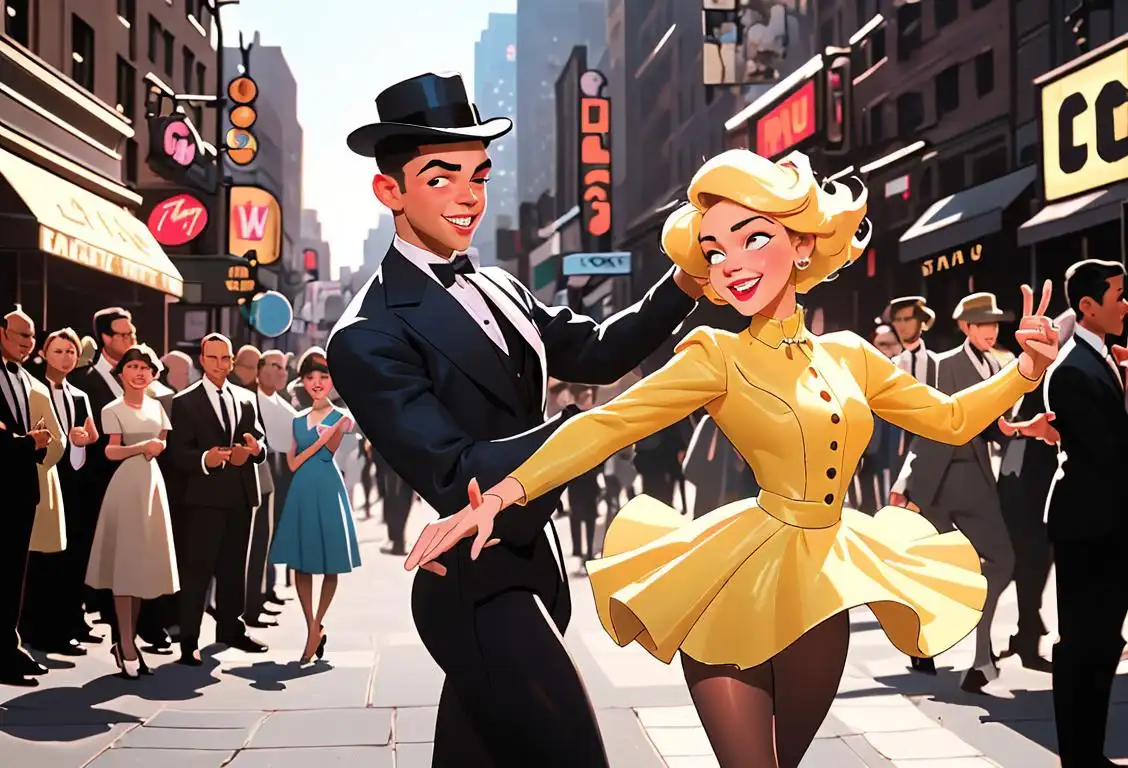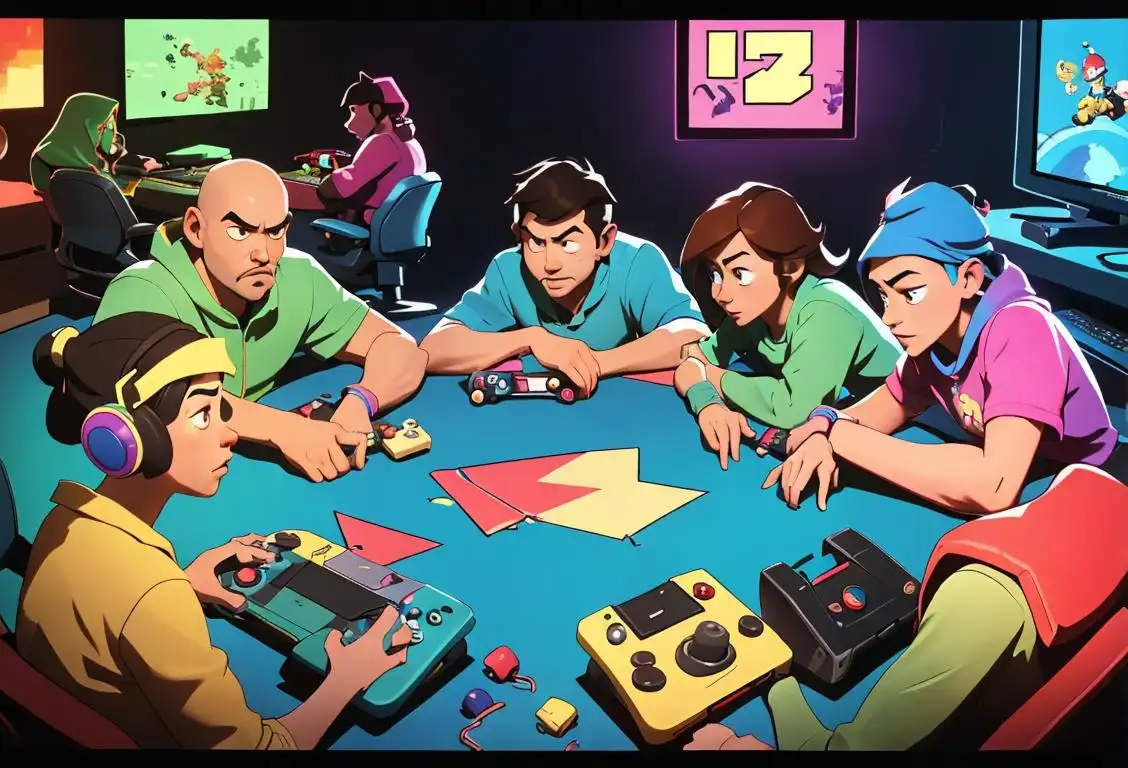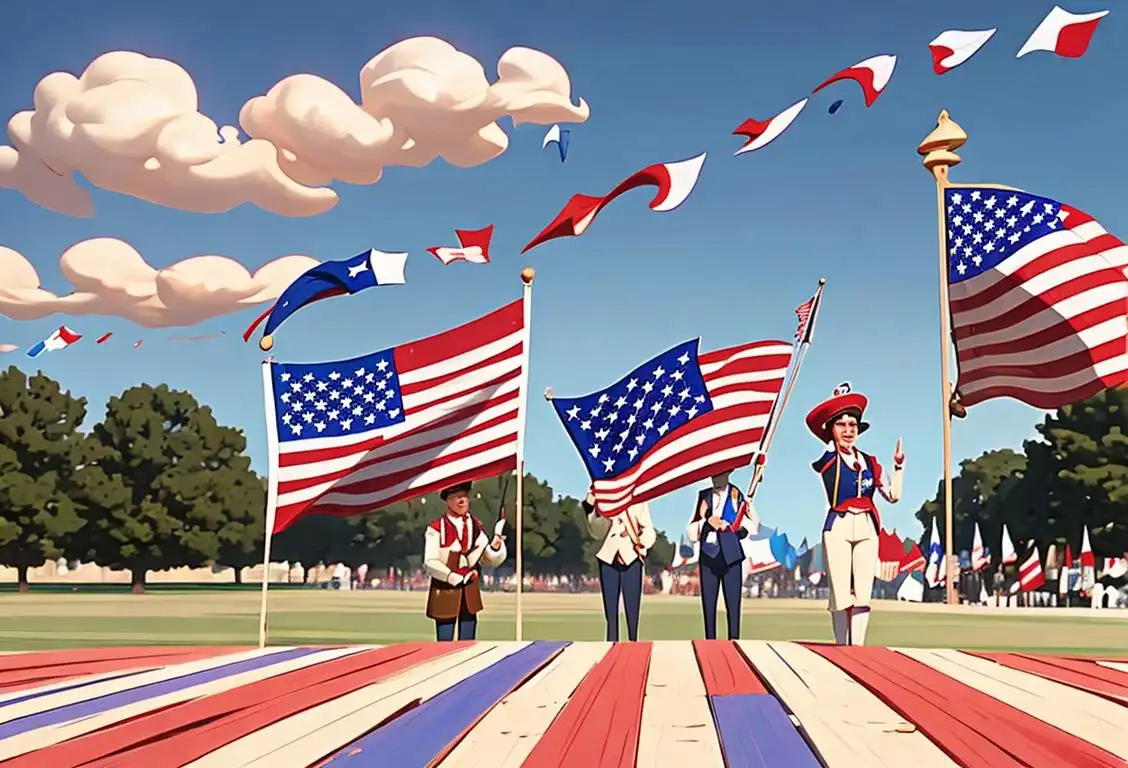National Tap Dance Day

Swept off your feet by Fred Astaire's exhilarating routines or tapping your toes at Gene Kelly's signature rain-dance? Well, grab those glossy tap shoes and brush up on your shuffle step - it's time to delve into the foot-tapping festivities of National Tap Dance Day!
When is Tap Dance Day?
It's national tap dance day on the 25th May.
A Step Above The Rest
National Tap Dance Day shimmy-shoed itself into our calendars in 1989, when U.S. Congress decided it was about time we celebrated this happy-go-lucky dance right across the nation. A day dedicated to the art of shuffle-hop-steps and maxie fords, it's no surprise that it was mentioned an impressive 5242 times online. We saw the most popular buzz on May 25th, 2016 - a day that witnessed tap enthusiasts bring forth their inner Ginger Rogers!
Tap Into History
Derived from a fusion of African tribal dances and Irish jigs, tap dance surfaced in America's buzzing 19th-century Vaudeville scene, and has been jazzing up our stages ever since. So, how did a dance form with such unique footwork nab its very own day? Well, in honor of the birthday of Bill 'Bojangles' Robinson - a key player in popularizing tap dance - National Tap Dance Day is set as May 25 every year.
A Toe-Tapping Tradition
From grand festivals to small gatherings, National Tap Dance Day is celebrated across the world with an array of events. Whether it's participating in a tapathon, attending a dance performance, or merely tapping out a rhythm while you make dinner, we're all united by the magic of music-made-by-feet on this day.
The Next Step
While tap dance continues to evolve, National Tap Dance Day is the perfect reminder of the dance form's history and influence. So, why wait until next May 25? Lace up those tap shoes today and let's create a rhythm that'll have Bill 'Bojangles' Robinson smiling down on us from his tap-tableau in the sky!
History behind the term 'Tap Dance'
1600s
Early Origins
Tap dance can trace its origins back to the 1600s in West Africa. It was influenced by the rhythmic dances performed by African slaves brought to the Americas during the Atlantic slave trade. These dances involved intricate footwork and syncopated rhythms, which laid the foundation for what would later become tap dance.
1800s
Juba Dance Emerges
In the early 19th century, the Juba dance developed among African-Americans in the United States. It incorporated elements of African dance, Irish step dance, and English clog dancing. Juba dance featured rhythmic stomping, clapping, and slapping of body parts to create complex rhythms. This dance form played a crucial role in the evolution of tap dance.
Late 19th Century
Minstrel Shows and Vaudeville
Tap dance gained popularity through its inclusion in minstrel shows and vaudeville performances of the late 19th century. These shows, characterized by their variety acts, featured tap dancers showcasing their skills alongside other entertainers. Tap dancing became a staple of the American entertainment scene, captivating audiences with its lively rhythms and intricate footwork.
1920s
Syncopated Tap
During the Roaring Twenties, tap dance underwent further development and evolved into a distinct style known as syncopated tap. Innovators like Bill Robinson, also known as Bojangles, popularized this style with their smooth and intricate footwork. Syncopated tap emphasized the syncopation of rhythms, emphasizing off-beat accents and improvisation, adding a new level of complexity to the dance form.
1930s
Golden Age of Tap
The 1930s marked the Golden Age of tap dance, with films becoming a prominent medium for showcasing the art form. Legendary dancers such as Fred Astaire and Ginger Rogers mesmerized audiences with their elegant and skillful tap routines. The popularity of tap dance skyrocketed during this period, solidifying its place in mainstream American culture as a beloved and influential dance style.
Late 20th Century
Tap Dance Revival
Tap dance experienced a revival in the late 20th century, thanks to the efforts of dancers like Gregory Hines and Savion Glover. They brought a renewed interest in tap dance by infusing it with modern styles and pushing the boundaries of the art form. The revival showcased the versatility and innovation of tap dance, proving its enduring appeal to new generations of dancers and audiences.
Did you know?
Did you know that tap dance is a worldwide phenomenon? While America might've birthed this ballet of the feet, the World Dance Theatre in Tokyo celebrates National Tap Dance Day with a festival that draws thousands of global attendees.Tagged
fun history dance cultural tradition arts & entertainmentFirst identified
16th May 2015Most mentioned on
25th May 2016Total mentions
5242Other days
Tap Dance Day
Maritime Day
Memorial Day
Video Game Day
Liberation Day
Teacher Appreciation Day
Vodka Day
Former Prisoner Of War Recognition Day
Flag Day
Convention Day








